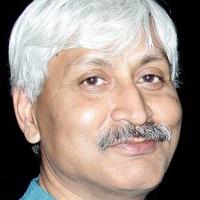
As 2023 comes to a close, five states will elect new legislative assemblies. Narendra Modi is again the face of the Bharatiya Janata Party (BJP) campaign in all these states, except Mizoram. This comes despite the expectation of political observers that the BJP’s prospects in Madhya Pradesh, Chhattisgarh and Telangana are not very bright and that Rajasthan will be a close contest.
It is again Modi vs the rest. No lessons have been learned from Karnataka, where the BJP lost heavily earlier this year. There, too, Modi led the BJP campaign and made the election all about himself. Before the memory of that loss has even begun to fade, he has once again made these state elections all about himself.
One reason could be that since 2014, Modi has sought to project a regal aura – he sees himself as the ‘elected monarch’ of India. And perhaps he wants his image in the public mind at all times. This is not for electoral reasons alone: he wants to make every discourse in India about himself. In fact, Indian citizens cannot escape his presence even in municipal elections – after all, people have seen him putting his reputation at stake even in the local body elections.
The idea is to keep public discussion focused on himself. Modi alone is the agenda setter and subject of public discourse. All opposition parties are forced to respond to him, because he is the authoritative voice and the spokesperson of the party. Thus emerges the image of a single warrior battling scores of adversaries, which in itself is impressive.
The other reason for Modi keeping the electoral focus on himself could be to project himself as the personification of ‘development’ – Vikas Purush or ‘Development Man’. And yet he seems to give himself the freedom, whenever needed, to run an election campaign that divides the electorate along communal lines.
Modi can be crass and anti-Muslim in his election speeches, but his position as prime minister prevents public criticism. In the recently held elections in Karnataka, he even raised a slogan in favour of the Bajrang Dal, one of the many militant outfits of the Rashtriya Swayamsevak Sangh, the fount of Hindu nationalist politics. There was no public uproar. Even a cursory look at his election speeches would reveal that he has been doing this consistently.
A largely uncritical media appears to give him a free pass for his divisive electioneering, perhaps dismissing his communal rhetoric as electoral compulsion. When Modi is engaged in an electoral battle, it almost appears as if the media joins forces with him.
Not always a winning formula
However, the projection of Modi as the sole face of the BJP does not always lead to electoral victories.
The year was 2015. Delhi was going to the polls to elect the legislative assembly. Narendra Modi had been prime minister of India for barely nine months and the so-called ‘Modi wave’ was in full flow. Delhi is not even a full state, yet Modi, the supreme leader of the ruling BJP, decided to make it his election.
The media noted: “The BJP had made Delhi a high-stakes battle with a massive ad blitzkrieg asking for votes in Modi’s name.”
He led an aggressive campaign telling the electorate, “If there is a BJP government in Delhi, then those here will be afraid of Modi and the central government.”
But the BJP lost badly. Their defeat under Modi was massive, with the party slumping to just three seats in the Delhi Legislative Assembly, from its earlier tally of 31.
The BJP rushed to clarify that it was merely a state election fought on local issues and should not be seen as a referendum on Modi.
Just after the Delhi debacle, Modi led another election campaign – this time in Bihar, which was going to the polls. The BJP lost again. Reuters reported, “Prime Minister Narendra Modi suffered a heavy defeat on Sunday in an election in Bihar, India’s third most-populous state, signalling the waning power of a leader who until recently had an unrivalled reputation as a vote winner.”
The myth of Modi as an unbeatable political leader has been broken again and again in the state legislative assembly elections. Be it Madhya Pradesh, Rajasthan, Chhattisgarh, Telangana, Andhra Pradesh or the northeastern states like Manipur and Meghalaya, the BJP lost despite Modi being its chief campaigner.
What Modi did after losing the elections was to break the opposition parties through defections – essentially ‘buying up’ the ruling party’s legislators to topple the elected government. He thus snatched the people’s mandate in Manipur, Madhya Pradesh and Karnataka from the Congress party even after losing the elections. These developments were presented as master strokes of the Supreme Leader who could turn electoral defeats into victories.
It is significant that in the current elections in five states, he has chosen not to address even a single meeting in Mizoram as the decimation of the BJP in the state seems certain – in part because of the BJP’s unpopularity among the Mizos. After Modi’s insensitive handling of the ethnic clashes in neighbouring Manipur, tribal communities displaced by the violence took shelter in Mizoram because of their close ethnic connections with the people of the state. Modi avoided going to Mizoram to campaign, clearly not wanting his name associated with defeat. In fact, even the Mizoram chief minister – an ally of the BJP – did not want to share a stage with the prime minister.
Today, the BJP is essentially symbolised by Modi. No other leaders in the party matter. This is what gives a sense of inevitability about him. Even while he keeps doing badly in the state polls, the media keeps up the narrative that he remains the people’s only choice for prime minister.
Apoorvanand teaches at Delhi University.






